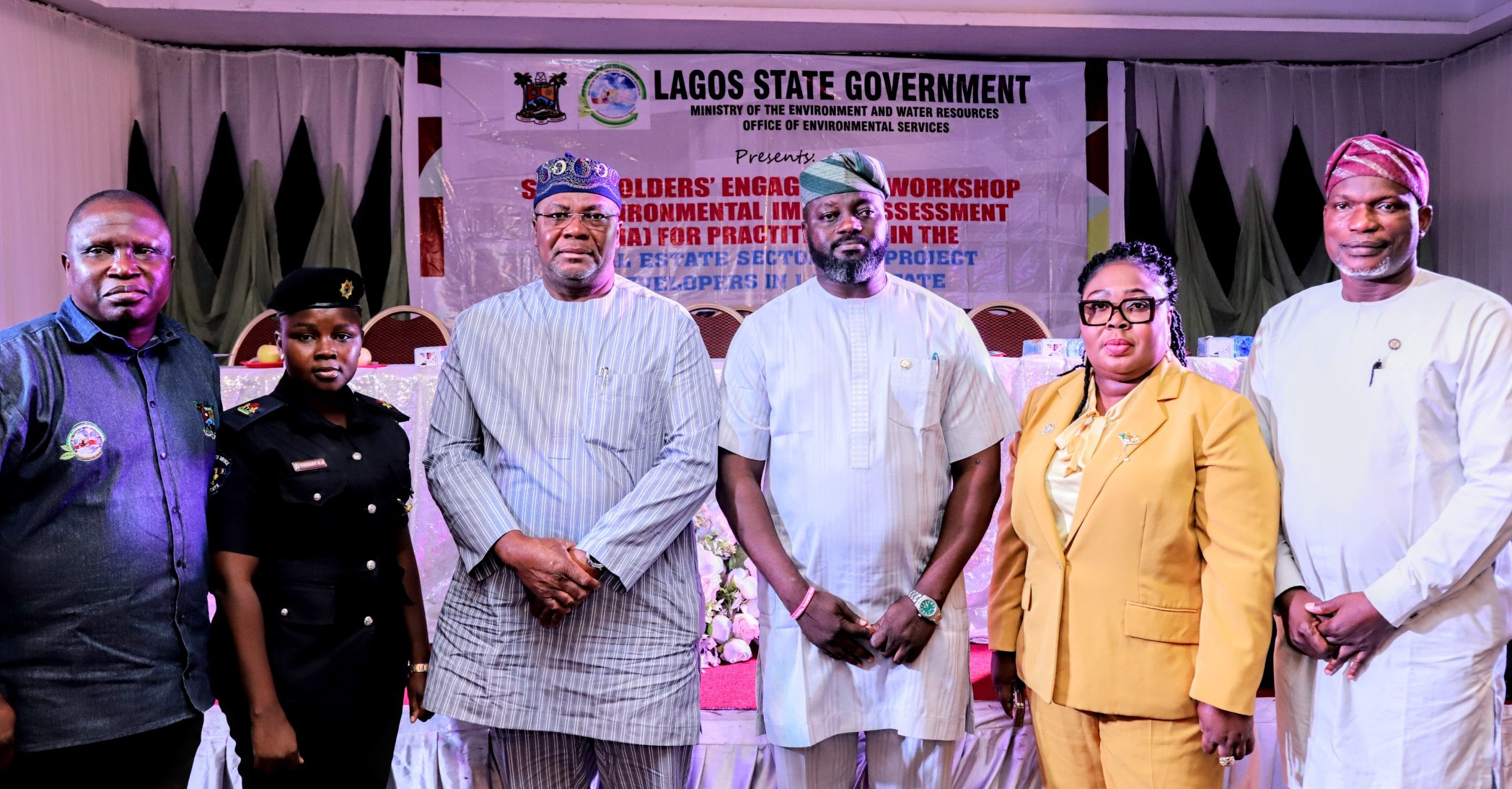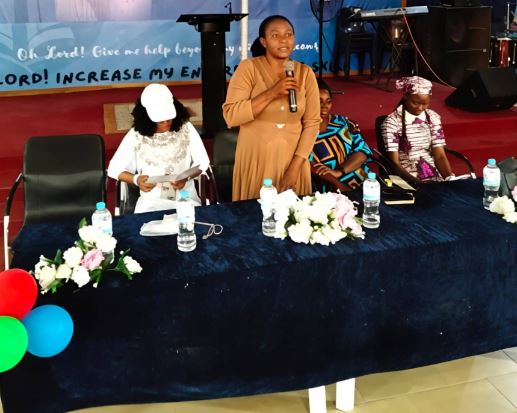Obtaining An EIA Approval Is A Must For All Project Development –Lagos Govt

The Lagos State Government on Wednesday restated that obtaining an Environmental Impact Assessment (EIA) Approval is a must for all project developments across the state and is not negotiable.
The Special Adviser on Environment, Engr. Olakunle Rotimi-Akodu made this known during a Stakeholders’ Engagement Workshop on Environmental Impact Assessment (EIA) organised for Practitioners in the Real Estate Sector and Project Developers in Lagos State, held at the Watercress Hotel, Ikeja.
According to him, all developers/builders must subject their projects to the EIA process before their commencement. These include all Estate development building projects, five-floor buildings and above, eight apartment units and above, shopping malls, filling stations, industrial facilities, sand mining projects, dredging, and land reclamation, amongst others.
Rotimi-Akodu averred that the Lagos State Government will not hesitate to enforce compliance in the overriding interest of ensuring public safety and sustainable development when necessary. He said Environmental Impact Assessment (EIA) is a critical environmental management tool that must be embraced by both the private and public sectors (Stakeholders in the Real Estate Sector) in order to achieve sustainable development.
He noted that the State has remained the most preferred destination for investors/businesses in Nigeria, saying this has been attributed to the growing population, which provides a huge market for goods and services, modern infrastructure, as well as sound policies, which have continued to create an enabling environment for businesses to thrive.
He said the establishment of industrial facilities, creation of new settlements, real estate-induced coastal reclamation, and development of Estates all come with significant adverse environmental impacts ranging from pollution of various environmental sources (Air, Land and Water) to sometimes irreversible environmental degradation if not properly managed.
Speaking further, the Special Adviser explained that the workshop was designed to bridge the knowledge gap on EIA matters and bring together Professionals and other Practitioners in the Real Estate Sector to discuss the importance of EIA in achieving sustainable development and the need to mainstream it into both public and private initiatives/projects in the State.
He said the Government is determined to continually protect the environment and public health, and as such, adopted the Environmental Impact Assessment (EIA) process as a critical tool for safeguarding the environment and ensuring sustainable development in line with global best practices.
The Governor’s Aide described the EIA as a formal process for identifying the likely impacts that may arise from a proposed activity or project on the environment, human health and socio-economic activities, adding that it helps in identifying the likely adverse and beneficial impacts of a project to put in place measures to reduce or mitigate the adverse ones.
The Special Adviser said the cost of everyone folding their hands and watching development activities degrade the environment, as well as destroy the fragile ecosystem, is huge, and the State cannot afford this cost in the face of other critical needs.
He reiterated that real estate and the construction industry contribute substantially to the State’s GDP, create thousands of jobs, from Project Development as well as Architects, Engineers, Artisans, Construction Materials Suppliers, Facility Managers, amongst others.
Earlier in his welcome address, the Permanent Secretary, Office of Environmental Services, Dr.Tajudeen Gaji, stated that the Workshop is not only apt, but timely, coming at a time when all hands must be on deck to ensure sustainable development in the State.
“EIA is a critical safeguard instrument that has been adopted across the globe as a tool for protecting the environment and public health. It has as its objective, early identification of likely impacts both adverse and beneficial that could result from a proposed project and proffering appropriate measures to either eliminate, reduce or mitigate the adverse impacts”, he said.
He emphasised that there is no doubt that while project development comes with obvious benefits, it also brings along negative environmental and social impacts that must be effectively mitigated or managed. He said if everyone ignores these impacts, they would expose the already fragile ecosystem of the State to further degradation and, by extension, jeopardise public health and safety.
The Director Environmental Assessment Department, Dr. Olasunkanmi Sojinu, in his lecture, mentioned that the EIA process is backed by the EIA Act CAP E12 LFN 2004 and the Lagos State Environmental Management and Protection Law 2017, which makes it mandatory for all major developments to be subject to the EIA process and obtain appropriate approval before commencement.
He said the principles of EIA include participatory, which involve all relevant stakeholders, including members of the public, project host communities and other interested parties in the EIA process, as well as proportionality, which is the level of detail/scope of the EIA that matches the size of the project and potential significant impacts of the project, amongst others.












